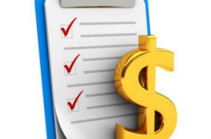Tips for Setting Your 2014 Financial Goals
 Many people choose to set new financial goals at the beginning of the year. This seems like the logical time to start to put your finances in order, and if done correctly can put you on the path to financial security. It is important, however, that you do not just make random goals, but instead you must create specific goals that are designed to help you find financial freedom.
Many people choose to set new financial goals at the beginning of the year. This seems like the logical time to start to put your finances in order, and if done correctly can put you on the path to financial security. It is important, however, that you do not just make random goals, but instead you must create specific goals that are designed to help you find financial freedom.
Here are some tips to help you create financial goals that will work for you.
Set a Realistic Budget
The first step in creating any financial goal is to make sure you stay realistic. Look at each item on your budget separately. Do not just put the lowest amount possible that you would owe, but be realistic about what the real expense is likely to be throughout the year. If you make a budget that is virtually unattainable or even extremely difficult, you are less likely to stick to your plan and overspend. Keep in mind that you can easily change your goals at a later point if you have a change in your finances.
Look at Your Debt
Any financial goals that you set for the new year should include an overall plan for how you plan to reduce, or even eliminate, your current debt. Depending on how much debt you currently have, this may be a long-term plan. Remember that it probably took you several years to get to the level of debt you currently have, so it will also take some time to pull yourself out of debt. This important thing is that you take steps now to reduce your debt and curb your spending.
Create a Savings Plan
You also want to ensure that you are saving at least a small amount back for emergencies. Most financial experts suggest that you maintain a savings fund that is equal to at least half of your annual salary. This will provided an added protection to you in the case that you lose your job, become unemployed, or face some other type of emergency. If possible, try to save back at least 10 percent of your earnings each pay period. This may mean that you need to cut back on some of your spending in other area, but if an emergency happens, you will be happy that you set extra money aside.
Track Your Spending
Creating a budget and setting financial goals is a great start down the path to financial freedom, but it is vital that you also create a system for tracking your spending. This process will help you see where you are spending all your money and will alert you to any overspending issues. There are several free online tools that are designed to help you track your spending, but it is up to you to post all of your expenses.
Evaluate Through the Year
It is also extremely important to evaluate your goals and your budget at least once every quarter throughout the year. You want to be honest about your progress and note any problems that you are having maintaining your goals. You may need to create a new budget or adjust some of your goals. Again, be realistic and only set goals that you feel are attainable. Remember that the important thing is that you are taking steps to be responsible for your finances.
Whether this is the first time that you have set financial goals for yourself or you do this every year, the tips above will help you set realistic goals that you can stick to. Tracking your spending keep you aware of your spending and help you track your goals. If you hold yourself accountable and evaluate your status regularly then you will be able to stick to your New Year goals.
Image courtesy of hin255 / FreeDigitalPhotos.net




